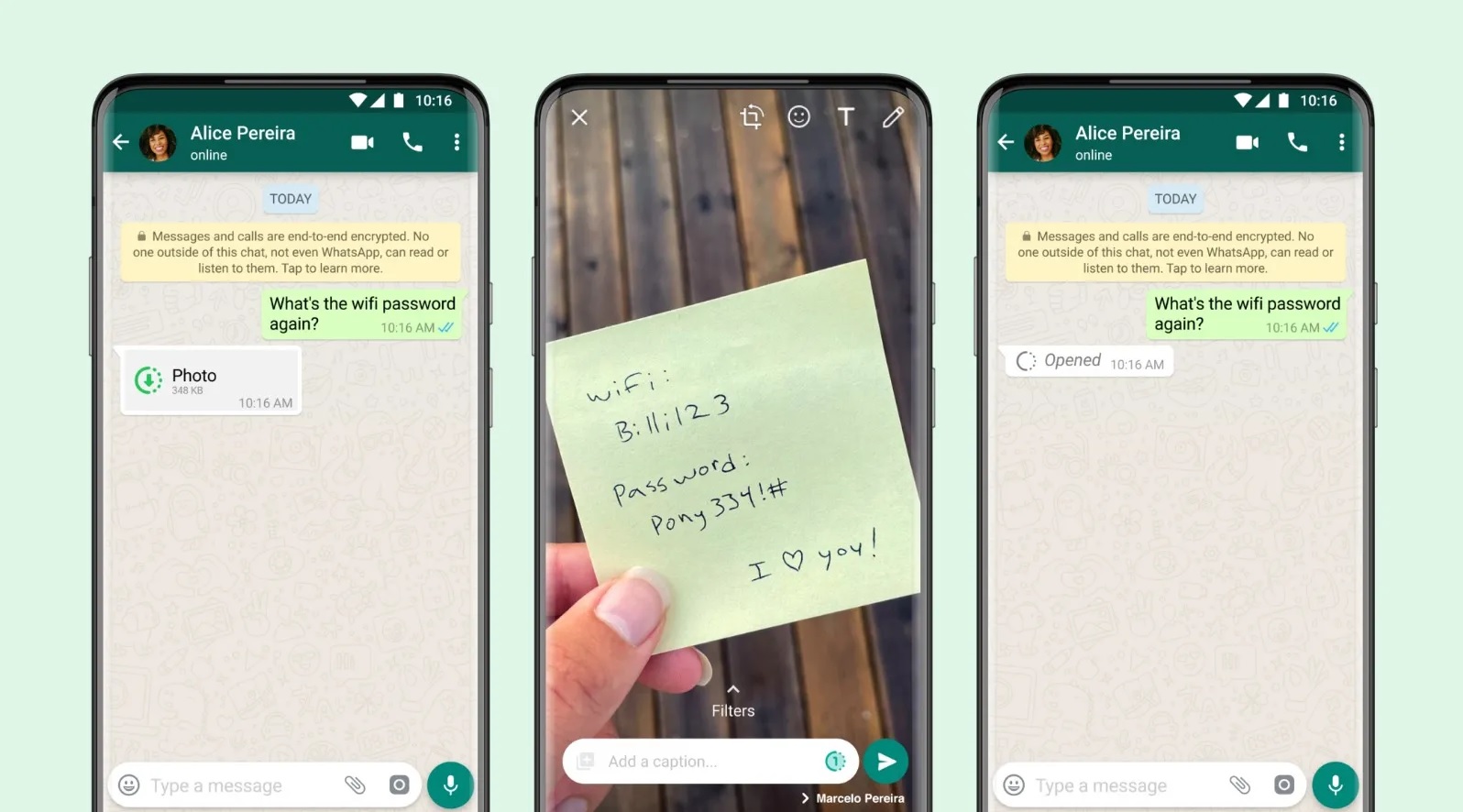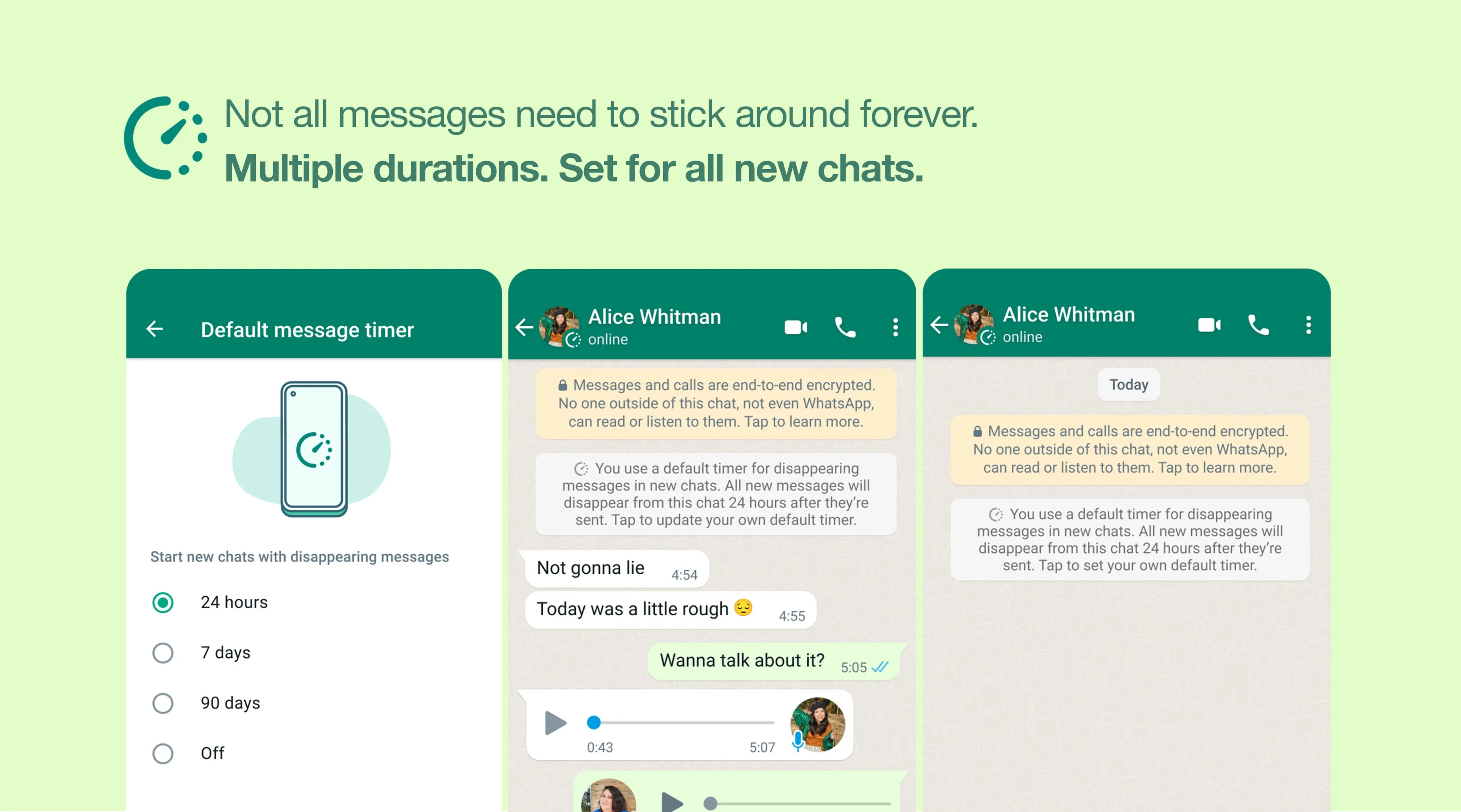WhatsApp now lets you enable disappearing messages by default
Disappearing messages can now be applied to all WhatsApp chats

Update: WhatsApp voice messaging is getting a huge upgrade.
WhatsApp has changed how its disappearing messaged feature works within its app by now allowing self-destructing messages to applied to all chats by default.
As was anticipated earlier this year, users can now make ephemeral chats the global default across all their messages, with a choice time limit for when messages are automatically deleted: 24 hours, seven days or 90 days.
WhatsApp is painting this as a way of allowing people to spontaneously live in the moment, without feeling guarded or worrying about leaving a written or audio record of their thoughts and feelings.
“As more of our conversations move from face-to-face to digital, we acknowledge there is a certain magic in just sitting down with someone in-person, sharing your thoughts in confidence, knowing you are both connecting in private and in that moment,” the company wrote on a blog post announcing the change.
It’s also about privacy, with the post lamenting how “we’ve become accustomed to leaving a digital copy of just about everything we type without even thinking about it.”

It’s still optional, so those that prefer to keep a record of their chats for finding old links and so forth won’t be impacted. It’s also worth noting that even if you do enable this for all chats, it won’t work retrospectively: anything said before the setting is enabled won’t be automatically scrubbed from existence.
Get instant access to breaking news, the hottest reviews, great deals and helpful tips.
As this is a sea change to how WhatsApp works, the company has set it up so that your contacts are informed of your choice when you initiate a new conversation with disappearing messages enabled. “This makes clear it's nothing personal — it's a choice you've made about how you want to communicate with everyone on WhatsApp moving forward,” the post explains.
The feature can also be enabled for group chats when they’re first set up, though it’s worth remembering that as privacy measures go, this isn’t foolproof. Messages could still be forwarded, or screenshotted for posterity.
But if you’re in communication with people who would go against your express wishes in such a way, then you likely have bigger problems that can’t be patched over with technology — no matter how well intentioned.
Freelance contributor Alan has been writing about tech for over a decade, covering phones, drones and everything in between. Previously Deputy Editor of tech site Alphr, his words are found all over the web and in the occasional magazine too. When not weighing up the pros and cons of the latest smartwatch, you'll probably find him tackling his ever-growing games backlog. He also handles all the Wordle coverage on Tom's Guide and has been playing the addictive NYT game for the last several years in an effort to keep his streak forever intact.
 Club Benefits
Club Benefits






